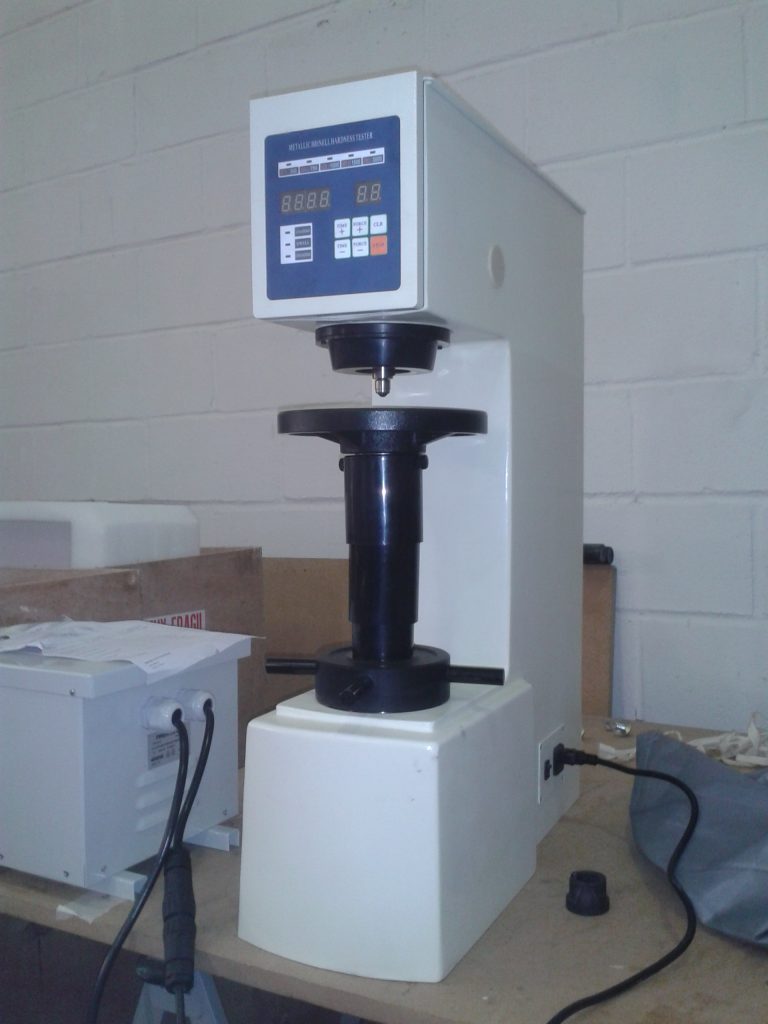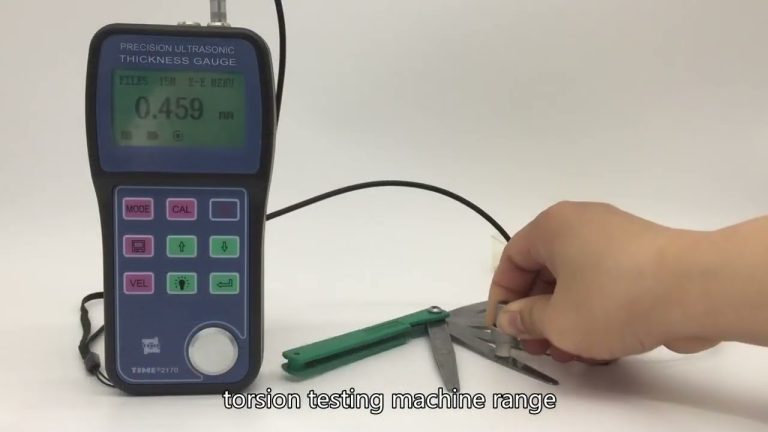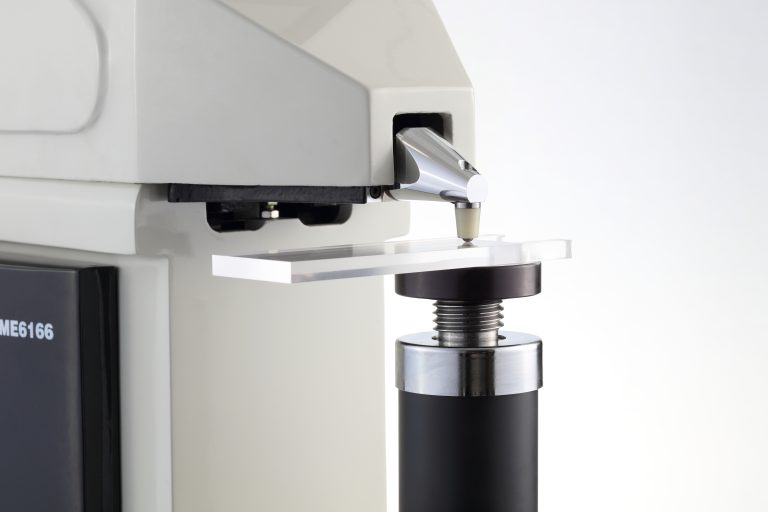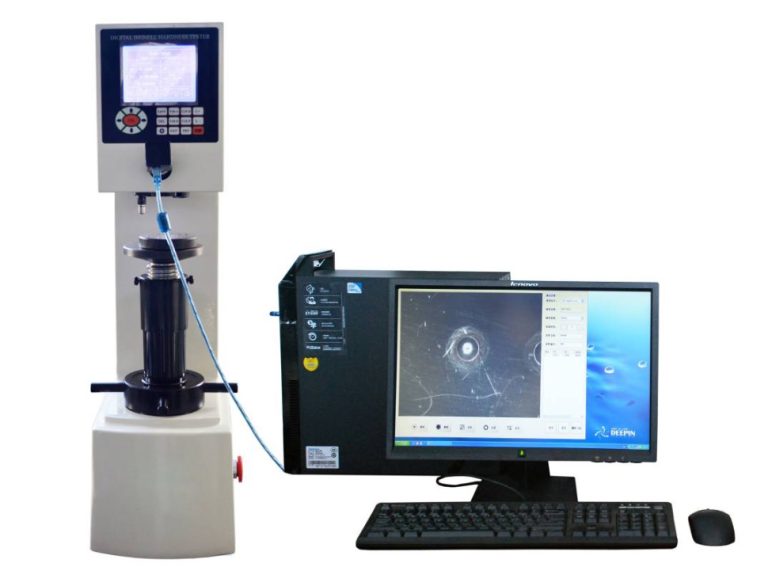The TIME5150 Leeb hardness tester is widely used in the steel industry. Its portability, high precision and versatility make it an ideal tool for on-site testing and laboratory analysis.
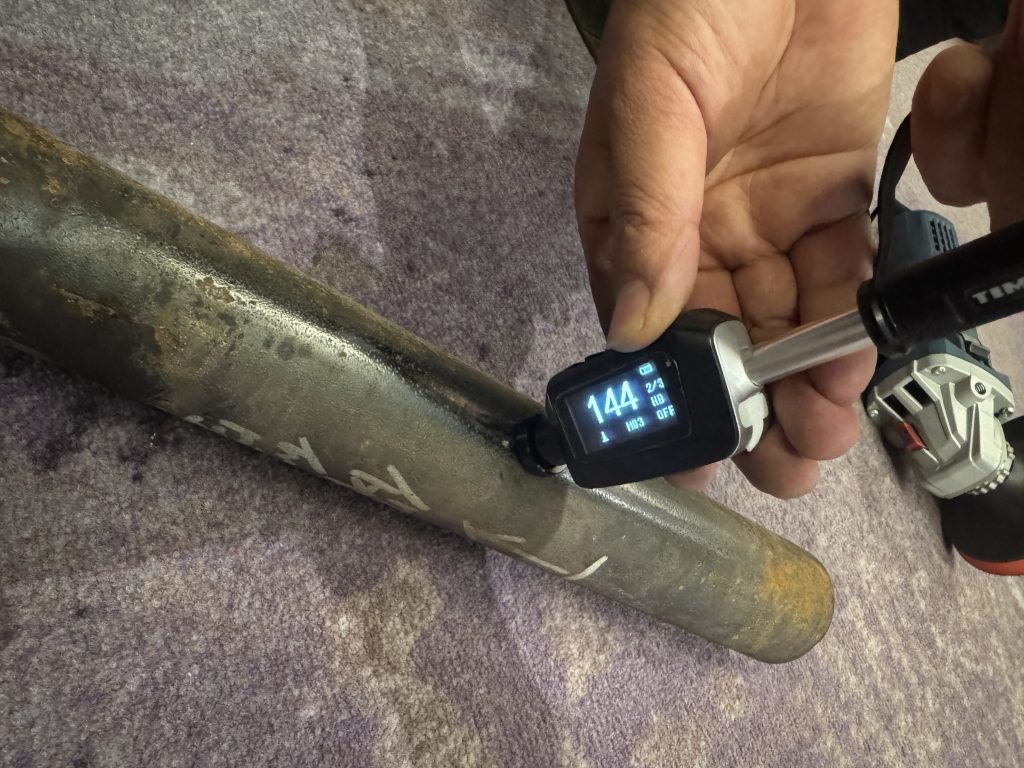
The following are its specific application scenarios and technical advantages in the steel industry:
- Steel material quality inspection and control
Raw material acceptance:
TIME5150 supports multiple hardness system conversions (such as HV, HB, HRC, HLD, etc.), can directly test the hardness value of steel materials, and convert Leeb hardness (HLD) to tensile strength (σb) according to GB/T 1172 standard, which is used to quickly determine the steel grade (such as Q235, Q345, etc.). For example, the tensile strength range of low carbon steel can be directly converted by hardness value, which assists enterprises to verify whether the steel meets national standards (such as GB/T 700, GB/T 1591).
Production process monitoring:
In rolling, forging or heat treatment processes, real-time detection of steel hardness changes ensures the stability of process parameters (such as quenching temperature, cooling rate), and avoids product failure due to insufficient or excessive hardness.
- On-site inspection of large steel components
Non-detachable parts inspection:
Applicable to on-site hardness testing of large steel structures such as bridges, pressure vessels, and pipelines without cutting or destroying the workpiece. Its portable design (only 120g weight) and 360° measurement direction adaptability allow flexible operation in small spaces or complex locations (such as welds and flange connections).
High alloy steel inspection:
For high alloy steels commonly used in the power and petrochemical industries (such as 10Cr9Mo1VNbN, 22Cr12NiWMoV, etc.), the TIME5150P special model has built-in hardness conversion tables for 9 types of high alloy steels in the power industry, which comply with the DL/T 1845-2018 standard and can directly detect the hardness of the parent material and weld area to ensure the reliability of the material under high temperature and high pressure environments.
- Customized inspection of special steels
Custom material function:
Generate a dedicated hardness conversion table through comparative tests to solve the measurement error problem caused by differences in material composition in traditional pre-installed conversion tables. For example, for different special alloy steels such as chromium-molybdenum steel (Cr-Mo) and chromium-nickel steel (Cr-Ni), users can establish more accurate conversion relationships15.
High-precision measurement requirements:
The surface roughness of the test piece must meet Ra ≤1.6μm. The instrument uses a D-type impact device (tungsten carbide ball head) and automatic calibration function to ensure that the repeatability error of the measurement result is ≤4HLD, meeting the high-precision detection requirements.
- Equipment maintenance and failure analysis
Service equipment evaluation:
Perform regular hardness tests on installed mechanical parts (such as gears, bearings, rollers, etc.) to evaluate the degree of material fatigue, wear or corrosion, predict the remaining life and formulate maintenance plans.
Failure cause diagnosis:
Through hardness distribution map analysis, identify local softening or hardening areas, and combine tensile strength data to trace heat treatment process defects or external damage causes.
- Technical advantages and compliance support
Portability and intelligence:
Equipped with Bluetooth printer and mobile phone APP (reserved function), support real-time data transmission and storage, and facilitate the generation of test reports. Its built-in rechargeable lithium battery (Type-C interface) and automatic shutdown function are suitable for long-term field operations.
Industry compliance:
It complies with ISO 9000 certification and multiple industry standards (such as DL/T 1845 in the power industry), and meets the compliance requirements of the quality management system of steel enterprises and third-party testing agencies.
Typical application cases
Steel rolling mills: Detect the hardness uniformity of hot-rolled steel plates and optimize rolling process parameters.
Automobile manufacturing: Verify the quenching effect of high-strength steel (such as boron steel) for automobiles.
Energy equipment: Evaluate the long-term service performance of high-alloy steel for power station boiler pipes
TIME5150 Leeb hardness tester covers the full chain detection needs of the steel industry from raw materials to finished products, from production to maintenance through its high precision, portability and customization functions, significantly improving quality control efficiency and equipment safety. For users who need to further understand specific technical parameters or application scenarios, please refer to the product manual or contact the manufacturer for technical support.

